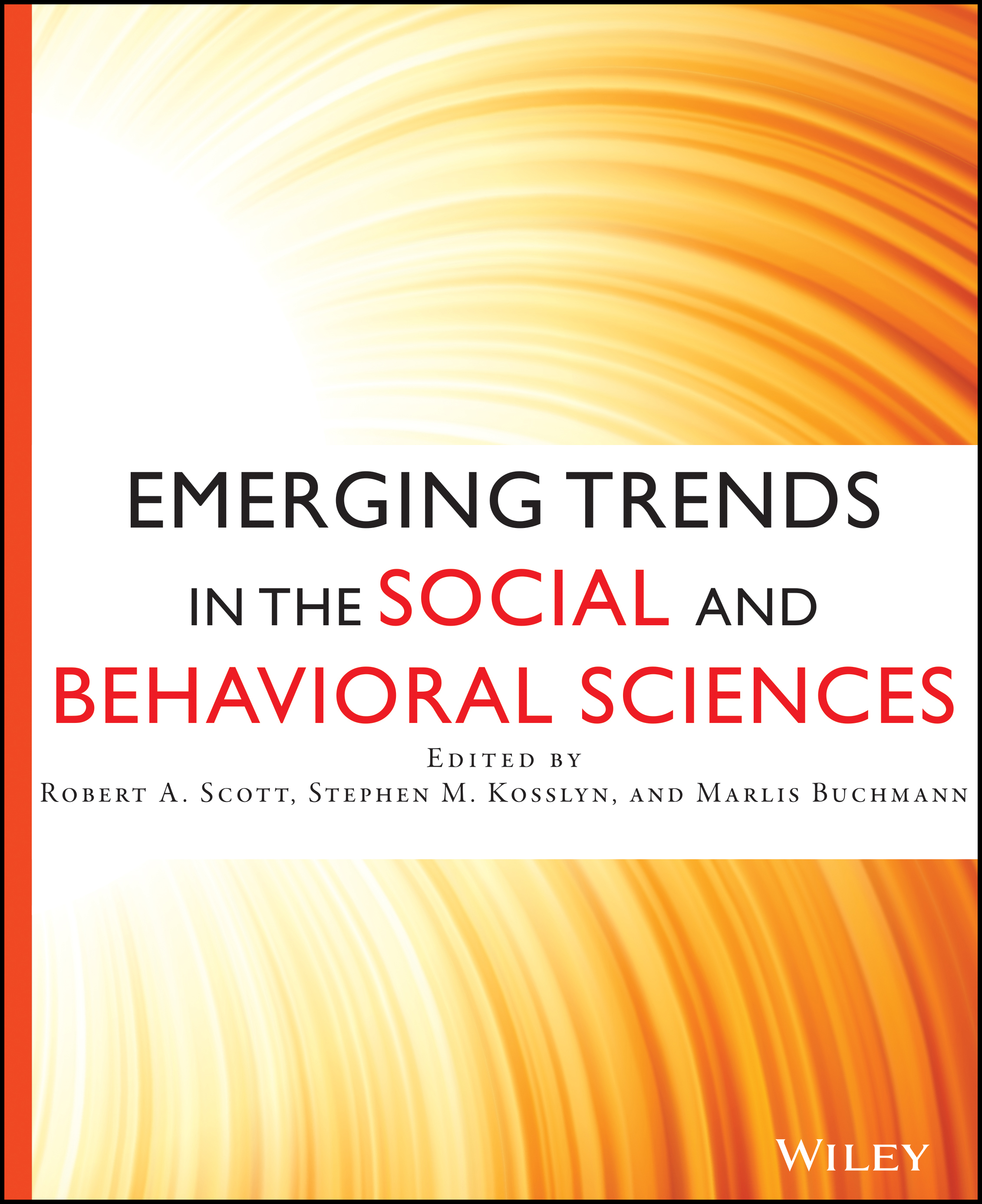Politics of Criminal Justice
Abstract
The apparent disjuncture between the reality of crime and government responses suggests that criminal justice is not simply a technical response to crime. If criminal justice were guided by technical choices, gun death would equal gun control, gun violence would be considered a public health crisis replete with public resources, and the political will to solve it. Instead what we know from the social sciences is that criminal justice tends to be caught up in morality plays about human nature and political competition over the distribution of public goods, including, but perhaps especially, security, where special interests rather than the public interest tend to hold sway. The significance of studying the politics of criminal justice lies in its capacity to account for and explain the disjuncture. Key issues for future research will be scholars' ability to close this gap.
References
- Aas, K. F. (2011). ‘Crimmigrant’ bodies and bona fide travelers: Surveillance, citizenship and global governance. Theoretical Criminology, 15(3), 331–346.
-
Barker, V. (2009). The politics of imprisonment: How the democratic process shapes the way American punishes offenders. New York, NY: Oxford University Press.
10.1093/acprof:oso/9780195370027.001.0001 Google Scholar
- Beckett, K. (1997). Making crime pay: Law & order in contemporary America. New York, NY: Oxford University Press.
- Bosworth, M. (2008). Border control and the limits of the sovereign state. Social & Legal Studies, 17, 199–215.
- Bosworth, M., & Guild, M. (2008). Governing through migration control: Security and citizenship in Britain. British Journal of Criminology, 48, 703–719.
- Campbell, M. (2012). Ornery alligators and soap on a rope: Texas prosecutors and punishment reform in the Lone Star State. Theoretical Criminology, 16, 289–312.
- Cavadino, M., & Dignan, J. (2006). Penal systems: A comparative approach. London, England: Sage.
- Clear, T. (2008). Imprisoning communities: How mass incarceration makes disadvantaged neighborhoods worse. New York, NY: Oxford University Press.
-
Garland, D. (2001). Culture of control: Crime and social order in contemporary society. Chicago, IL: University of Chicago Press.
10.7208/chicago/9780226190174.001.0001 Google Scholar
-
Gottschalk, M. (2006). The prison and the gallows: The politics of mass incarceration in America. Cambridge, England: Cambridge University Press.
10.1017/CBO9780511791093 Google Scholar
- Gottschalk, M. (2012). The carceral state and the politics of punishment. In J. Simon & R. Sparks (Eds.), The SAGE handbook of punishment and society (pp. 205–241). London, England: Sage Publications.
- Green, D. (2006). Public opinion versus public judgment about crime: Correction the ‘comedy of errors’. British Journal of Criminology, 46, 131–154.
- Greenberg, D., & West, V. (2001). State prison populations and their growth, 1971–1991. Criminology, 39(3), 615–653.
- Kupchik, A. (2010). Homeroom security: School discipline in an age of fear. New York, NY: New York University Press.
-
Lacey, N. (2008). The prisoner's dilemma. Cambridge, England: Cambridge University Press.
10.1017/CBO9780511819247 Google Scholar
- Lappi-Seppälä, T. (2008). Trust, welfare and political culture: Explaining differences in national penal policies. In M. Tonry (Ed.), Crime and justice 37. Chicago, IL: University of Chicago Press.
- Loader, I., & Sparks, R. (2011). Public criminology? New York, NY: Routledge.
- Loader, I., & Sparks, R. (2012). Beyond lamentation: Towards a democratic egalitarian politics of crime and justice. In T. Newburn & J. Peay (Eds.), Policing: Politics, culture and control (pp. 11–41). Oxford, England: Hart.
-
Lynch, M. (2009). Sunbelt justice: Arizona and the transformation of American punishment. Stanford, CA: Stanford University Press.
10.1515/9780804772471 Google Scholar
-
Manza, J., & Uggen, C. (2006). Locked out: Felon disenfranchisement and American democracy. New York, NY: Oxford University Press.
10.1093/acprof:oso/9780195149326.001.0001 Google Scholar
- Melossi, D. (2012). Punishment and migration between Europe and the United States: A transnational “less eligibility”?. In J. Simon & R. Sparks (Eds.), The SAGE handbook of punishment and society (pp. 412–429). London, England: Sage Publications.
-
Miller, L. (2008). The perils of federalism: Race, poverty and the politics of crime control. New York, NY: Oxford University Press.
10.1093/acprof:oso/9780195331684.001.0001 Google Scholar
- Miller, L. (2013). Power to the people: Violent victimization, inequality and democratic politics. Theoretical Criminology, 17, 283–313.
- Murakawa, N., & Beckett, K. (2010). The penology of racial innocence: The erasure of racism in the study and practice of punishment. Law & Society Review, 44(3/4), 695–730.
- Murakawa, N. (2008). The origins of the carceral crisis: Racial order as ‘law and order’ in postwar American politics. In J. Lowndes et al. (Eds.), Race and American political development. New York, NY: Routledge.
- Page, J. (2012). The toughest beat: Politics, punishment and the prison officers union in California. New York, NY: Oxford University Press.
- Petersilia, J. (2003). When prisoners come home: Parole and prisoner reentry. New York, NY: Oxford University Press.
- Rowan, M. (2011). Democracy and punishment: A radical view. Theoretical Criminology, 16(1), 43–62.
- Savelsberg, J. (1994). Knowledge, domination and criminal punishment. American Journal of Sociology, 99(4), 911–943.
- Schoenfeld, H. (2010). Mass incarceration and the paradox of prison conditions litigation. Law & Society Review, 44, 731–768.
-
Simon, J. (2007). Governing through crime: How the war on crime transformed American democracy and created a culture of fear. New York, NY: Oxford University Press.
10.1093/oso/9780195181081.001.0001 Google Scholar
- Sutton, J. (2004). The political economy of imprisonment in affluent Western democracies, 1960–1990. American Sociological Review, 69(2), 170–189.
- Tonry, M. (1995). Race, crime and punishment in America. New York, NY: Oxford University Press.
- Uggen, C., & Inderbitzen, M. (2010). Public criminologies. Criminology & Public Policy, 9(4), 725–749.
- Wacquant, L. (2000). The new ‘peculiar institution’: On the prison as surrogate ghetto. Theoretical Criminology, 4(3), 377–89.
-
Wacquant, L. (2009). Punishing the poor: The neo-liberal government of social insecurity. Durham, NC: Duke University Press.
10.1215/9780822392255 Google Scholar
- Weber, L., & Bowling, B. (2008). Valiant beggars and global vagabonds: Select, eject, immobilize. Theoretical Criminology, 12, 355–375.
- Weber, L., & Pickering, S. (2011). Globalization and borders: Death at the global frontier. Basingstoke, Hampshire, England: Palgrave Macmillan.
- Western, B. (2006). Punishment and inequality in America. New York, NY: Russell Sage Foundation.
Browse other articles of this reference work:



